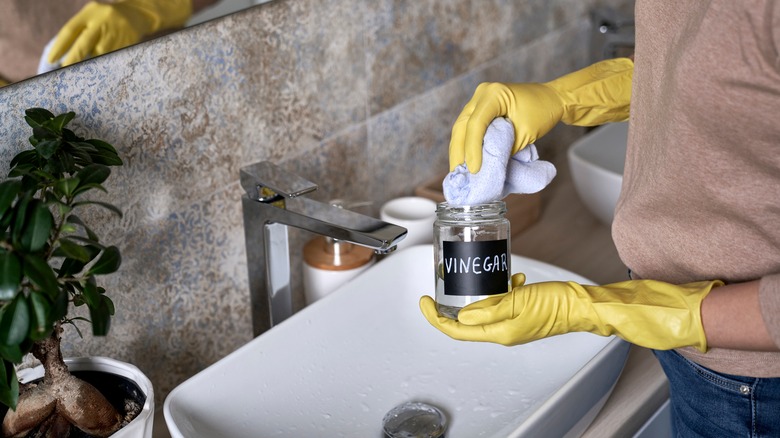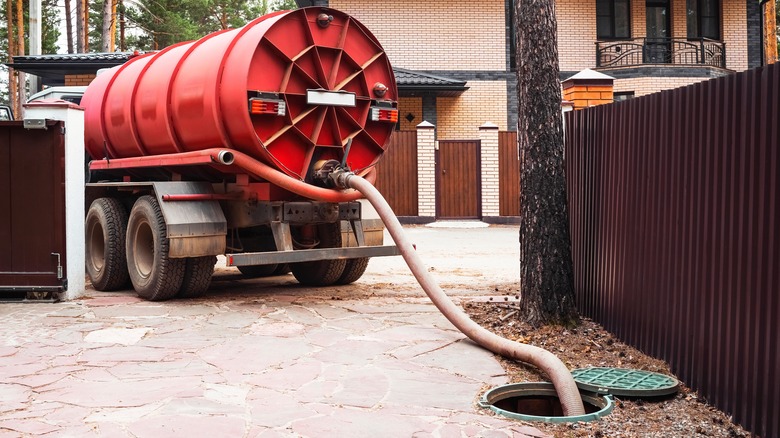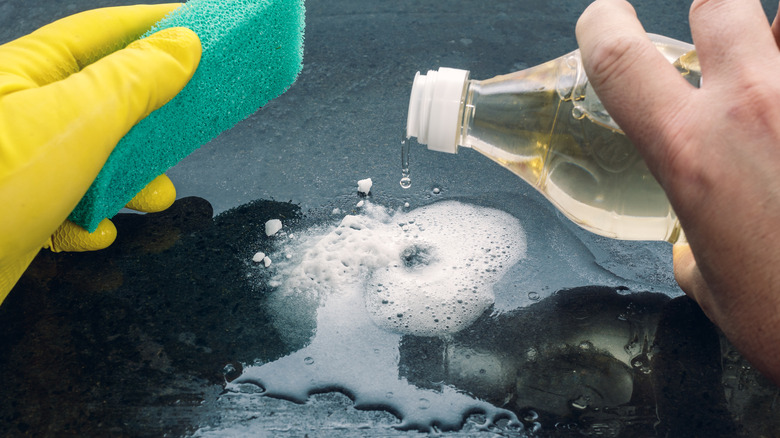Is It Safe To Clean Your Bathroom With Vinegar If You Have A Septic System?
Deep cleaning with something you can also safely eat is a homeowner's nontoxic dream-come-true. Vinegar is one of the most highly-recommended green cleaning agents, and it's a versatile cleaning tool, working even in germ-ridden bathroom. It's easy on the planet (and our pocketbook), but is it equally easy on a septic system? Thankfully, cleaning your bathrooms with vinegar is not only safe, but its use is even recommended by professionals for the health of your septic system.
The right kind of cleaning solution is essential for homes with septic systems to keep them working reliably. However, moderation is key, even with vinegar, since large amounts of acetic acid can throw off the pH balance that keeps the system functioning correctly. Plus, not all vinegar is strong enough to kill dangerous germs — finding the right ratio in your vinegar cleaning mixture will control unwanted bathroom bacteria while keeping the beneficial ones alive in your septic tank.
Why is vinegar a top choice for septic-safe cleaning?
The word "bacteria" may make you wrinkle your nose, but it's not all bad. In fact, there are quite a few times when we want bacteria around, and we most certainly want them in our septic tanks, since they play a crucial role in breaking down the waste in the tank. A cardinal rule of cleaning a house on a septic system is to use septic-safe cleansing agents, and vinegar falls conveniently into that category.
Among all the vinegars in the salad dressing aisle at your local market, white vinegar is the one that's ideal for cleaning. In the right concentrations, the acetic acid in white vinegar kills harmful bacteria, fights mold, and even stops some viruses in their tracks. Beyond its germ-killing capability, vinegar's straight-up cleaning power keeps pipes clean and clear for optimal draining — soap scum and grease that create clogs in plumbing are no match for white vinegar.
Getting the right vinegar ratio
It's highly unlikely that you'll be flooding your system with enough vinegar to cause a major issue. However, waste management professionals warn that dumping large amounts, like a gallon or more, into your system all at once can slow the system's function. So, if you need to dispose of an old jug of vinegar, don't pour the entire quantity down the drain at once
In order to reduce the unwanted bacteria that commonly plague bathrooms, researchers found that using diluted vinegar won't do the trick. Instead, use straight white vinegar (also called cleaning vinegar) to lower the risk of illness from these germs. For surfaces that come into contact with the most germs, like toilets and sinks, use undiluted vinegar. However, low-contact surfaces, such as mirrors and towel rods, can sparkle safely with a wipe of diluted vinegar-water spray upgraded with a bit of dish soap.


